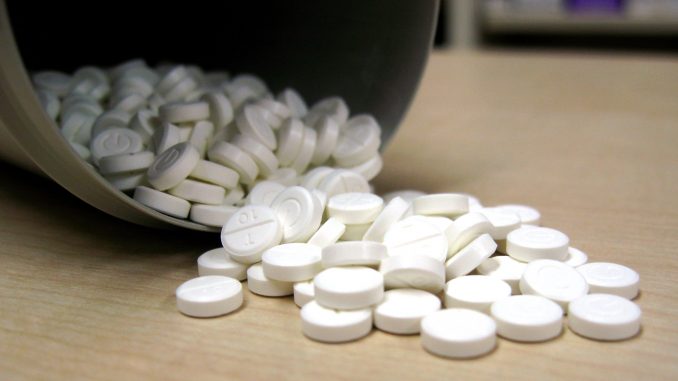
On April 28, a countywide community forum held by a handful of Ulster County agencies and human services organizations met at the Ulster BOCES Conference Center to address the serious heroin epidemic here in Ulster County.
“We have one goal in mind and that is to help our community,” said Walkill Central School District Superintendent Kevin Castle at the start of the conference, explaining that the intention of the congregation was to offer information and advice to the community, connect with each other and recognize the problem.
Though banned in the States in 1905, the States continues to prescribe opium to eligible patients with complications such as cancer or a pain-related illness.
In America, 207 million prescriptions were written in 2013, the most in the world. Studies also show that nine out of 10 people addicted to heroin started before age 18 and half were first prescribed opium, said Smith, bringing up that in 2014 about 19,000 people died from prescribed opium overdose and almost 11,000 from heroin.
From 2001 to 2014, heroin-related deaths have increased six-fold in the United States. Every day in 2014, two New Yorkers died from heroin overdose sand it was recorded that half of overdose deaths between 2009 and 2014 were people under the age of 35.
Fortunately, Kasandra Quednau was not one of those people. Quednau, who’s been sober since 2014 now, first started drinking and smoking marijuana in seventh grade and then experimented with harder drugs at age 16.
By age 21, she dropped out of school, lost her job and was shooting up heroin every day. “I’d get high, vomit, and then scream that I was done… but then the drug dealer would call and I was high again.” In order to acquire enough funds to keep shooting up, Quednau started burglarizing houses and was eventually arrested and put in jail.
It was then in jail that she forgave herself, reevaluated her life, was let out in 2014 and turned her life around. Today, she is back in school, has a job and is also a drug counselor in the Rt. 212 Coatlion, a community based organization bridging the gap in substance abuse services throughout Ulster County.
“I don’t want a pat on my back,” Quednau said to the audience. “I just want one person out there to realize the pain, loss and suffering isn’t worth it and for my story to change theirs.” She struggles daily with her addiction still. “Don’t give up,” said Quednau, directed at not only those that share her addiction, but parents of those as well.
One parent in particular, Lilyan Spool, also spoke. Spool is a mother of a son who is now recovering from heroin abuse. Her son started using heroin at 16 and was addicted by age 17.
“Fear pulses in my veins as heroin pulses through yours,” Spool said in a letter to her son while he was still abusing the drug until he was imprisoned for driving a car that did not belong to him, a car that belonged to his parents. Spool and her husband called the cops on their son in an attempt to get him the help he needed. He is now clean and sober for 15 months as of a few days ago.
“He’s been slowly getting his life back, I’ve been slowly getting my son back, and I’ve been slowly getting my life back,” Spool said, bringing up her own recovery through programs, classes, meditating and conferences like this. She instilled hope in the audience advising parents like her to not give up on their children as well.
While hope is indeed helpful, Ulster County has been successful in their response effort through the Department of Health Opioid Prevention Program, to those who do overdose. In 2015, 33 percent of 911 calls in Ulster County were due to drug overdose. Responders are prepared with Narcan kits, a prescription medicine that reverses an opioid overdose. It cannot be used to get high and is not addictive. Narcan kits are also available without a prescription at CVS as of January.
Additional efforts to combat the heroin epidemic include organizations like Talk2Prevent and HOPENY. On April 30, National Prescription Drug Take Back Day was held and residents of the area were encouraged to dispose empty medical containers, used to abuse prescription opium, in bins dubbed “take back boxes” to be collected by law enforcement. It is their mission to get Bill A09883/S7404 passed, which would create disposal sites with take back boxes, operated by local pharmacies.
